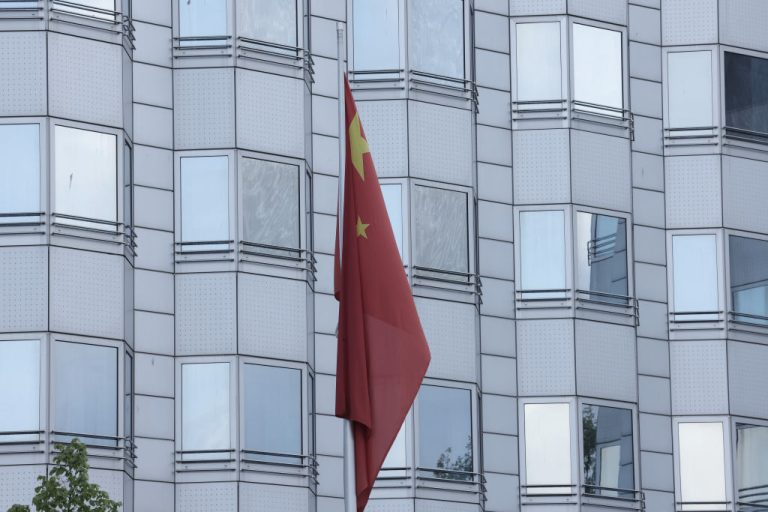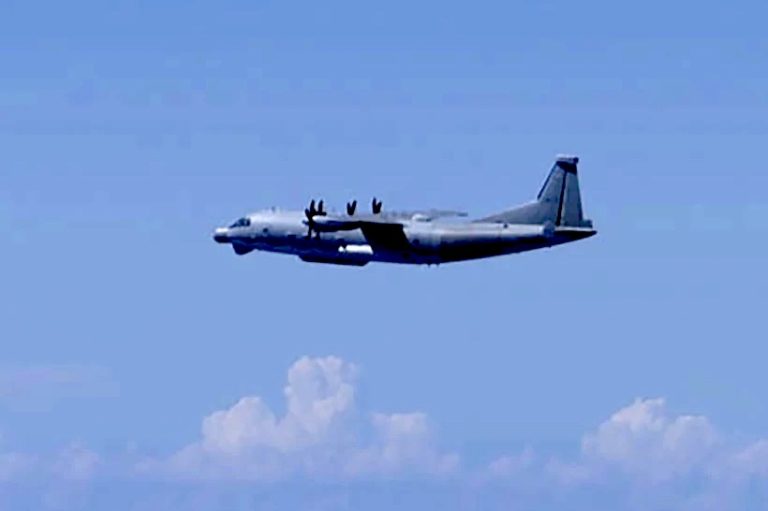In view of the “severe and complicated” epidemic control situation, the Beijing Winter Olympics Organizing Committee announced on Jan. 17 that tickets for the 2022 Games will not be sold publicly.
“We’ve decided to adjust the original plan from selling tickets publicly to organizing specific audiences to watch on-site,” the announcement reads.
The Omicron variant continues to spread in China, affecting at least 14 provinces, according to the authorities.
The Winter Olympics are scheduled to begin on Feb. 4 in Beijing and nearby Hebei Province. Now, with the added pressures from COVID prevention and control greatly increasing, the Beijing Winter Olympics Organizing Committee formally announced the decision.
White House officials said the U.S. will boycott the upcoming Games because of China’s human rights “atrocities” last December.
READ MORE:
US Will Send 18 Officials to Upcoming Beijing Olympics Despite Diplomatic Boycott
Success
You are now signed up for our newsletter
Success
Check your email to complete sign up
The diplomatic boycott, which does not bar athletes from attending, has been encouraged by some members of Congress and rights advocacy groups for months, Reuters reported.
“U.S. diplomatic or official representation would treat these games as business as usual in the face of the PRC’s egregious human rights abuses and atrocities in Xinjiang, and we simply can’t do that,” White House press secretary Jen Psaki said during a daily press briefing, referring to the People’s Republic of China.
“The athletes on Team USA have our full support,” Psaki added. “We will be behind 100% as we cheer them on from home.”
Inbound flights banned before Winter Olympics
Chinese aviation authorities ordered more flight cancellations from the U.S. for the coming weeks, along with flights from countries including France, Indonesia, and the United Arab Emirates, citing COVID-19 containment rules.
The list released by the Civil Aviation Administration of China on Friday newly bans American Airlines Group Inc. and Delta Air Lines Inc. flights to Shanghai from Dallas and Detroit, respectively.
This further narrows transit options in and out of China, as the two airlines join dozens of other flights from the U.S., including United Airlines Holdings Inc. and Chinese airlines included in the list since the beginning of the year.
Other flight routes by domestic and foreign airlines that authorities have banned in recent days include Paris-Shanghai, Jakarta-Wuhan, and Abu Dhabi-Shanghai.
Omicron in Beijing and Shanghai
Pang Xinghuo, deputy director of the Beijing Municipal Center for Disease Control and Prevention, confirmed on the evening of Jan. 15 that there was a new confirmed case of Omicron in Beijing’s Haidian District.
On Jan. 16, the Health Commission’s website announced that in addition to one confirmed case in Beijing on Jan. 15, there was one newly confirmed case and another asymptomatic infection outside Beijing as well.
In Shanghai, there were also confirmed cases of Omicron infection. According to a report from the Shanghai Municipal and Health Commission, Shanghai added 24 confirmed cases on Jan. 15 with two asymptomatic infections.
Shanghai added 43 confirmed cases on Jan. 14 and confirmed 30 new cases on Jan. 13. In Zhongshan, Guangdong Province, on Jan. 13 and in Zhuhai, Guangdong province on Jan. 14, the Omicron variant was confirmed to be in transmission. As more infected people travel abroad, the risk of community spreads increases.
He Qinghua, a first-level inspector for the CDC of China’s Municipal and Health Commission, announced that Omicron cases were found in 11 cities and provinces, including: Zhejiang, Tianjin, Shanghai, Anyang, Henan, Dalian, Guangzhou, Zhuhai, Zhongshan, Shenzhen, Wuxi, and Changsha, Hunan Province.
Zhuhai city, Guangdong Province has strictly controlled traffic since Jan. 14. Residents in the city are not allowed to leave the city or the province. Zhuhai airport has also canceled all flights into Beijing.
The Shanghai Municipal Culture and Tourism Bureau notified travel agencies and online travel enterprises to immediately suspend operations of cross-province group tours and “air ticket + hotel” business starting Jan. 14.







